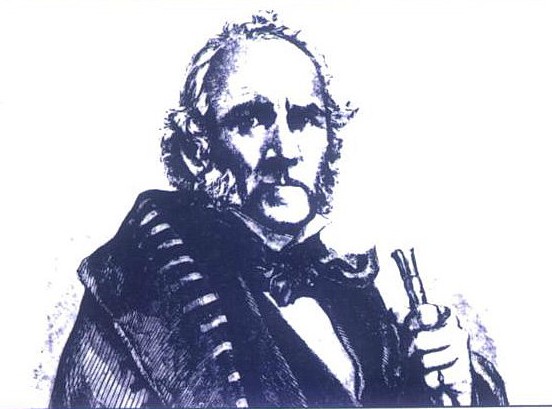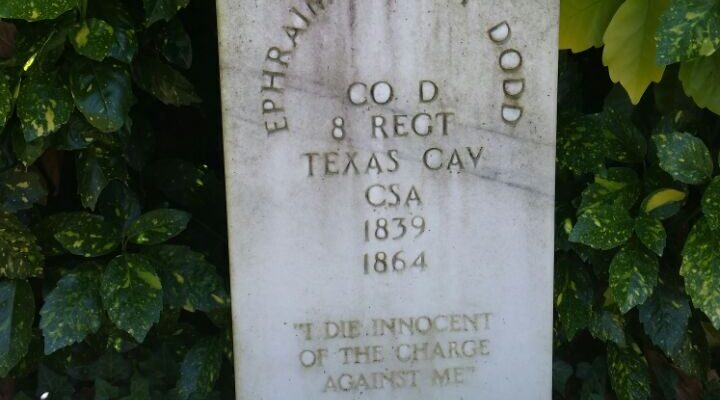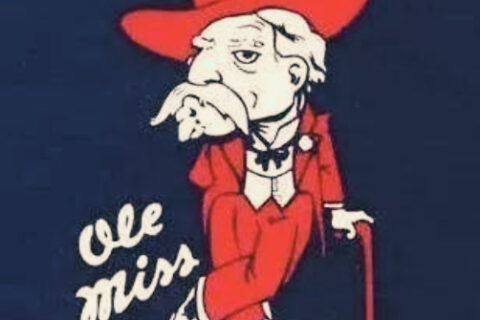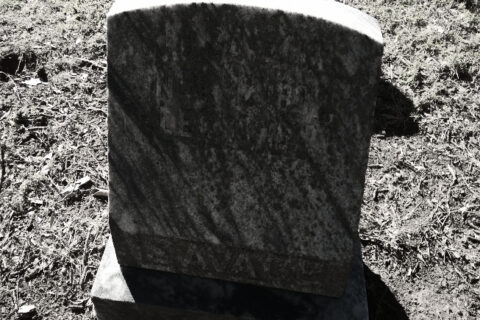Today, in the great State of Tennessee is Confederate Memorial Day. On this day, President Davis’ birthday, we pause to remember the hundreds of thousands of men who gave their lives in service of our Nation. We remember the sacrifice of their wives and mothers to part with them to the field of battle, the hardship those men endured fighting to secure their independence from tyrannical Yankee rule, and the ultimate cost at which we must record their efforts. Today, we look to the past in solemn remembrance with the fervent wish that they not be forgotten.
I’d like to share with you all the story of a young man whose grave I had the privilege to visit just the other day. His stone sits in front of the Bleak House, General Longstreet’s headquarters during the Battle for Knoxville. It’s easy to miss, tucked in front of a holly bush. The inscription bears the name “Ephraim Shelby Dodd.” He died at the age of 25 by a Yankee noose after a tribunal convicted him of spying. Their evidence was that he was wearing pieces of salvaged Yankee uniform and that he kept a diary in which he recorded having fooled hostile local civilians into thinking he was with the invading army. Although many prominent figures in Knoxville saw through the kangaroo court and tried to have him released as the ordinary soldier he was, the Yankee bloodlust won out. On January 8th, 1864, the young man fell from the gallows and the rope snapped, leaving him in agony. A second noose was hastily made, and half an hour later, a second drop sent Ephraim home to his Lord. His final words recorded as an epitaph on his stone were, “I die innocent of the charge against me.”
Today, I will visit Ephraim’s stone and take pause at the circumstances surrounding his murder by the Yankees. He was a Kentuckian by birth, a Texan by honor, and a Tennessean in burial. He joined the other some 1,500 Southern men who lie in repose throughout the city, largely massed in the Bethel Cemetery. Although most of their graves are not marked, a monument stands at the center of the cemetery. It is a large stone pillar, surmounted by an average Southern soldier. He looks weary, yet stands on, rifle in hand, looking out over his fallen brothers in arms. Four tablets before him record the names of the men buried on those hallowed grounds, never to be forgotten as long as we have the fortitude to speak their names and deeds.
They died in service to their Nation, doing their duty to their homes, their kin, and their descendants. It is our duty to carry their names and noble Cause as our own, to teach our children the lessons of our past, and to conduct ourselves worthy of their terrible sacrifice. And, as the great General Lee said, “Do your duty in all things. You cannot do more, you should never wish to do less.”






Thank you for keeping our memories alive.